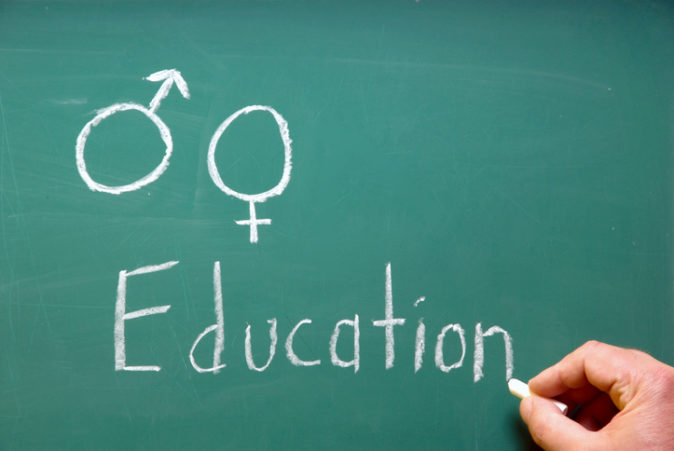Earlier this week the Joint Committee on Education presented a report on Relationships and Sexuality Education (RSE). This report has two main flaws: it undermines the role of the school ethos in RSE and it fails to address the question of what the purpose of RSE should be. Both of those flaws are based on a confusion between facts and values.
The report recommends that “the Education Act 1998 be amended or at least reviewed, so that ethos can no longer be used as a barrier to effective, objective and factual teaching”. (p. 28)
Such a recommendation proceeds from anti-religious assumptions, even if in the document they are not so well articulated. There is a clear bias here towards the idea that Catholic schools can offer proper RSE which at the same time is faithful to their principles. The ethos of schools is presented, without evidence, as “a barrier to effective, objective and factual teaching”. Is this always the case?
The report acknowledges that under the current Act, “the ethos should not affect the content of what is taught” (p. 25). If this true, there is no need to amend the existing legislation and the recommendation is void. But it also says that the ethos “may affect the resources that are used, the approach that is taken and that this may affect the consistency of delivery to school” (p. 25). What it is meant here is not clear. How does the ethos affect the resources but not the content?
A healthy pluralist State welcomes the contribution made by religions, and thus by religiously inspired education, towards values and norms. Instead, a secularistic approach, the one which clearly inspires this report, seeks to eradicate religious influence from the public square. (See T. Cooling, A Christian Vision for State Education)
RSE, more than any other subject, is value-laded because it deals with the way we understand ourselves in relation with others. It will always be controversial and to deny its true moral dimension is simply dishonest.
Students and families have a variety of views on what is appropriate or not with regard to sex. A morally neutral discourse on relationships and sexuality is impossible. It is inevitable that in presenting and discussing human beings, and their actions, we immediately include values and norms.
There are three main values that usually inspire RSE programmes: welfare, freedom, and virtue.
These values are not mutually exclusive and should all be present in RSE teaching, but the different emphasis on one or another value may vary.
An approach could focus on welfare, health, well-being, avoiding risk factors, unplanned consequences, etc. A different delivery, instead, could focus more on autonomy, informed choices, consent, self-determination, etc. A third alternative approach, inspired by virtue, will emphasise long-term stable commitments, the complementarity of sexes, the natural orientation towards procreation of the conjugal act, the public dimension of romantic relationships, etc.
No one of these approaches is more “factual and objective” than the other, as they differ not on facts but on values.
Values permeate every aspect of sexual education, given that it encourages or discourages certain choices and behavior. A non-directive approach to RSE is not more (or less) objective than one which is inspired by an explicitly Christian understanding of the good. Different RSE programmes can be perfectly factual and still deeply disagree on the question whether our scientific knowledge should be used to promote autonomy, to maximize well-being or to prepare for marriage.
In a pluralistic society, the role of the State is not to tell parents what is morally appropriate for their children. Instead, the state should enable parents to express their preferences so that even RSE is somehow an articulation of their values.
The report wants to limit this choice, in the name of objectivity. It inaccurately presents the ethos of a school as a barrier to facts. But in confusing facts with values, it effectively advocates for the state the role of determining what the purpose of RSE should be, and what values should inspire it. There is little factual and objective here, this is an ideological report.
PS. It would be too easy to point out that some of the factual assertions in the report are not objective at all. How is gender ideology objective? If, as the report says, there is a spectrum of gender identities, can anyone “objectively” tell us how many there are? Five, ten, fifty-two?
















